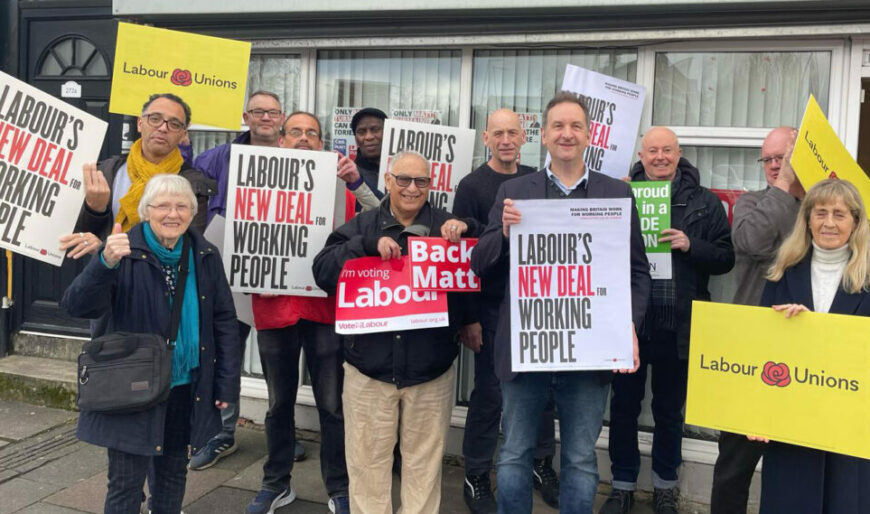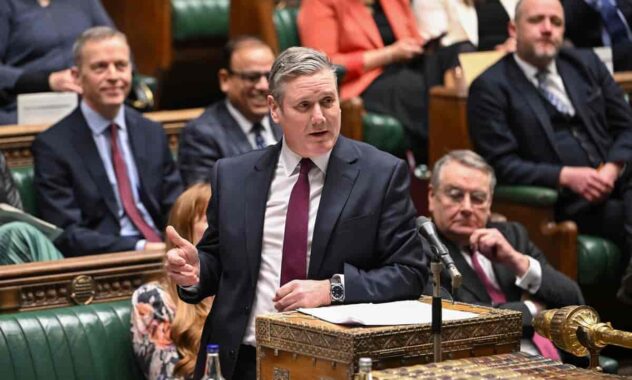More than 70 per cent of managers support Labour’s changes to employment law
Poll finds most managers back Labour’s New Deal for Working People

A new poll shows four in five British managers believe workers’ rights should be a top priority for government, with the survey commissioned by the Chartered Management Institute (CMI) also revealing strong support for key elements of Labour’s New Deal for Working People.
The polling paints a picture of company managers at odds with the CBI over Labour’s plans for workers’ rights reforms.
More than 70 per cent of managers support Labour’s proposed changes to employment law such as the right to flexible working and family-friendly policies, the survey found.
It also showed that 80 per cent pf managers polled believed that workers’ rights should be a top priority in national policies, while 83 per cent said such changes can positively impact workplace productivity.
This appears to be at odds with statements made earlier this year by President of the Confederation of British Industry (CBI) Rupert Soames, amongst others, earlier this year. Soames told the Financial Times he wanted to help Labour avoid “areas of unintended consequence” in their plans. The CBI, it was claimed, was pushing for Labour to soften its proposals.
In addition, Lord Mandelson, warned against “rushing” through changes and urged the party not to go further than “the settlement bequeathed by New Labour”.
However, Anthony Painter, director of policy at the CMI, said the new polling showed that many City bosses who oppose the plans “may want to check in with their own management teams”.
“Organisations need to ditch the old battles between workers and bosses. Our research shows they often want the same thing—a secure job, confident and capable managers, and the ability to balance work and life responsibilities effectively.”
Adding:
“While some prominent business leaders and groups have called for plans to advance workers’ rights to be watered down, our new research suggests they may want to check in with their own management teams.
We found that British managers not only believe it’s important for government to implement policies that improve conditions for their workforce, but they actively believe it will drive up productivity.
Policies that support flexible working, stronger family-friendly rights and a renewed drive to close the gender pay gap are desperately needed if the UK is serious about creating modern workplaces where all employees can thrive.
Workers want job security, and British managers consistently tell us that improved conditions often lead to higher productivity, recruitment and staff retention. Regardless of where these policies land, the New Deal for Working People plan is at least asking the right questions.”
Paul Nowak, general secretary of the TUC, said the survey showed that “good employers have nothing to fear from Labour’s plans”.
“Managers know their workforce do a better job when they are happy and more secure at work. Since the Conservatives came into power in 2010, insecure work has exploded, living standards have been hammered and productivity has gone through the floor. The UK’s long experiment with a low-rights low-wage economy has been total failure.”
Labourlist report that Labour’s plans for enhanced family-friendly policies and the introduction of a right to disconnect were the most strongly supported policy measures among those surveyed, with 92% saying the policies were very important or fairly important for employers to adopt, and just 6% saying they were not important.
Protections for carers and action plans to eliminate gender, ethnicity and disability inequalities were also backed by the vast majority of respondents, with around 90% of the 1,000 managers surveyed saying such policies were important.
More than four-fifths of respondents (82%) said Labour’s plans to grant day-one rights to all workers were important, while 80% said the same of introducing a right to request flexible working as a default from day one.
Almost three-quarters of those surveyed (74%) said a ban on zero-hours contracts was important for employers to adopt, with the same proportion of respondents saying the publication of pay gaps other than the gender pay gap, such as ethnicity and disability, was also important.
Justin Madders, Labour’s Shadow Minister for Business, Employment Rights and Levelling Up, said:
“This is such an important poll and really shows why we should not be timid about our policies to significantly boost workers’ rights.
Good and responsible businesses have nothing to fear and much to gain from strengthening workplace protections – by ending the race to the bottom we will promote good working practices.
We have had a continual weakening of workers rights for far too long and many businesses recognise it is time to reset the balance – our policies are good for workers and good for those businesses who want to do the right thing by their workforce- we should be saying this more!”







